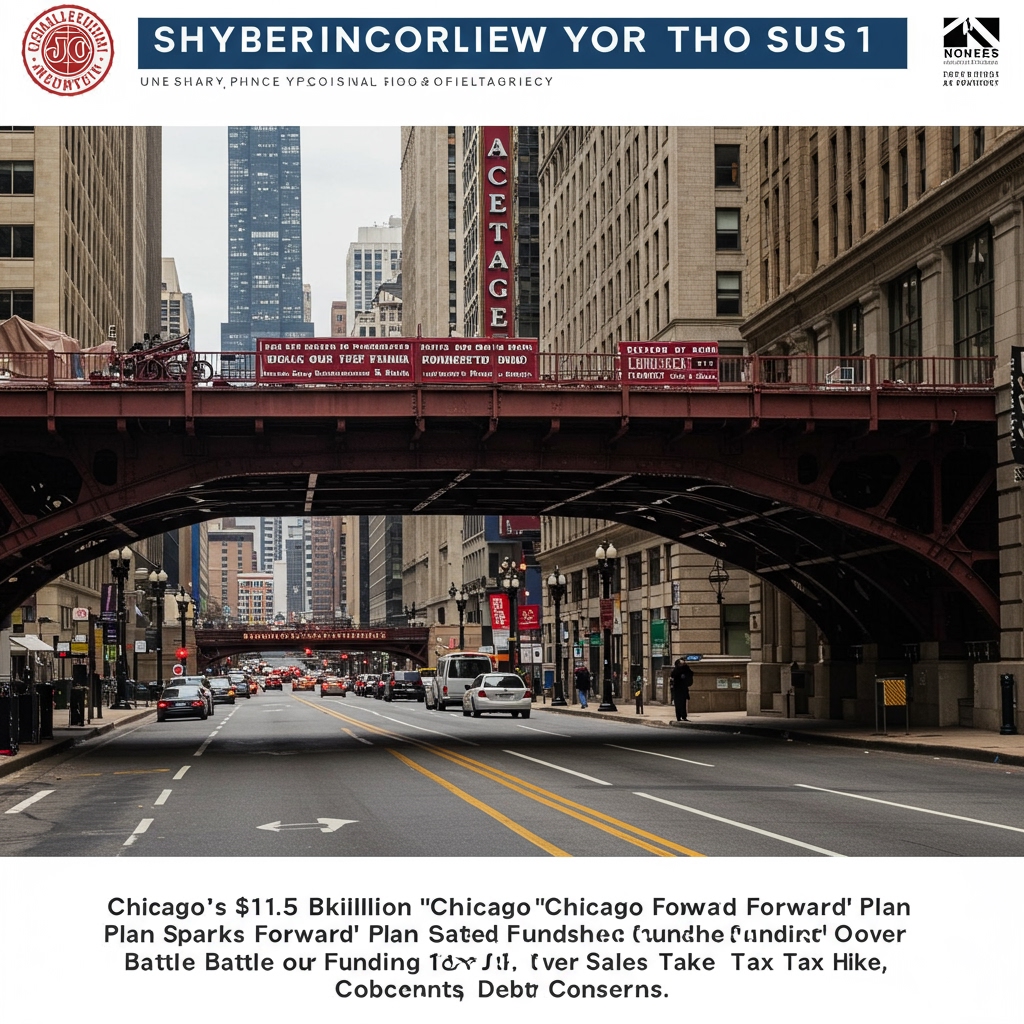CHICAGO, IL – The Chicago City Council’s powerful Finance Committee narrowly approved a controversial proposal on Monday, authorizing the city to issue $500 million in new general obligation bonds. The measure, intended to fund projects under the ambitious “Chicago Forward” initiative, passed by a vote of 15-13 after hours of heated testimony and deliberation that underscored deep divisions within the committee regarding the city’s fiscal future and investment priorities.
The ‘Chicago Forward’ Initiative and Bond Proposal
The “Chicago Forward” plan is envisioned as a comprehensive strategy to drive economic development and address critical infrastructure needs across Chicago. Proponents argue that substantial upfront investment is necessary to modernize aging public works, stimulate job growth, and enhance the city’s competitiveness. The $500 million bond measure represents a significant financial tool proposed to accelerate these goals.
Alderman Sophia Rodriguez, a key architect and advocate for the bond proposal, formally introduced the measure to the committee. During her presentation, Alderman Rodriguez passionately argued that the new bond issuance is not merely an expenditure but a vital investment essential for the city’s progress. She highlighted potential projects ranging from transportation upgrades and bridge repairs to public building modernizations and investments in underserved neighborhoods. According to Alderman Rodriguez, delaying these critical infrastructure improvements would ultimately cost the city more in the long run through deferred maintenance and missed economic opportunities. She framed the bonds as a necessary mechanism to seize current opportunities and lay a strong foundation for future prosperity, asserting that the “Chicago Forward” vision cannot be realized without this level of funding.
Concerns Over Debt Burden and Transparency
The proposal, however, faced significant opposition, primarily led by Alderman David Chen. Opponents raised serious concerns about the timing and potential impact of adding another half-billion dollars to the city’s already substantial debt burden. Chicago currently grapples with significant unfunded pension liabilities and existing bond obligations, leading critics to question the prudence of taking on more debt, even for potentially beneficial projects.
Alderman Chen and his allies on the committee voiced particular apprehension regarding the lack of specific, itemized project allocations tied directly to the proposed bond funds. Critics argued that without a clear, transparent list of how the $500 million would be spent, it is difficult for aldermen and the public to assess the true value and necessity of the borrowing. They called for greater transparency and a more detailed breakdown before committing the city to further debt. Concerns were also raised about the interest payments on the bonds, which will add to the city’s annual expenditures for decades.
The Heated Committee Debate
The Finance Committee meeting on Monday became a forum for a spirited and, at times, tense debate reflecting the divergent views on the proposal. Supporters echoed Alderman Rodriguez’s points about essential investment and economic stimulus, emphasizing the potential positive impacts on neighborhoods and the city’s overall infrastructure health. They argued that waiting for budget surpluses to fund such large-scale projects is unrealistic and that borrowing at potentially favorable rates is a responsible path forward.
Opponents countered forcefully, reiterating the risks associated with increasing the city’s debt load. They questioned the city’s capacity to manage additional debt service payments, especially in uncertain economic times. The debate frequently circled back to the transparency issue, with opponents demanding more detailed plans and greater accountability for how the bond proceeds would be utilized. The discussion highlighted the perennial challenge faced by the city: balancing the need for investment with the imperative of fiscal responsibility.
The Narrow Vote and What’s Next
Following extensive discussion and testimony, the committee proceeded to a roll-call vote. The measure passed by the narrow margin of 15 votes in favor to 13 against, reflecting the deep divisions within the committee and the contentious nature of the proposal. The close vote signals that the proposal is likely to face continued strong opposition as it moves forward.
With the Finance Committee’s approval secured, the $500 million bond measure now advances to the full Chicago City Council for a final vote. That decisive vote is currently scheduled to take place later this week. The outcome of the full council vote remains uncertain, given the close margin in the committee and the vocal opposition. The debate is expected to intensify as all 50 aldermen weigh the potential benefits of the “Chicago Forward” investments against the concerns regarding increased city debt and fiscal transparency. The final decision will have significant implications for the city’s financial future and the realization of the ambitious “Chicago Forward” plan.
Citizens and stakeholders will be closely watching the upcoming full council session to see whether the measure gains the necessary support to pass or if the concerns raised by opponents will sway enough votes to halt the $500 million borrowing plan.















